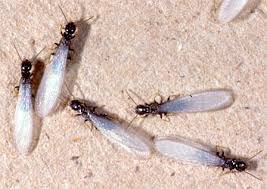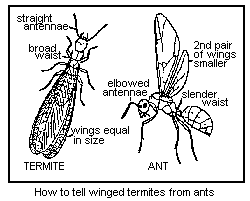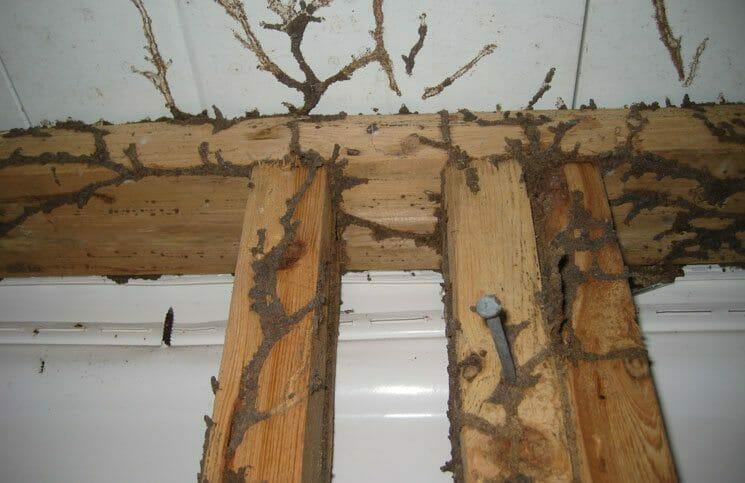Termites Control : Common Questions asked by Homeowners
One of the most destructive insect in the India is the termite. These wood-destroying insects cost Indian property owners millions each year in repair costs.
One of the most destructive insect in the India is the termite. These wood-destroying insects cost Indian property owners millions each year in repair costs, and more to exterminate these pests and arrest the damage being done. Termites and termite control treatment services can be confusing, however, and there are more options available today than ever before.
Hometriangle answers some of the most common termite questions raised by homeowners.
1. Why worry about termites?
Termites cause millions of rupees in damage each year. They primarily feed on wood, but also damage paper, books, insulation, and even swimming pool liners and filtration systems. Termites can injure living trees and shrubs, but more often are a secondary invader of woody plants already in decline.
While buildings may become infested at any time, termites are of particular importance when buying or selling a home since a termite inspection/infestation report is normally a condition of sale. Besides the monetary impact, thousands of winged termites emerging inside one's home are an emotionally trying experience — not to mention the thought of termites silently feasting on one's largest investment.
2. Why are infestations often discovered during May - August?
Spring typically is when large numbers of winged termites, known as "swarmers," emerge inside homes. In nature, termites swarm to disperse and start new colonies. Triggered by warmer temperatures and rainfall, the winged termites emerge from the colony and fly into the air.

The swarmers then drop to the ground, shed their wings, pair off with a mate, and attempt to begin new colonies in the soil. Few swarmers emerging outdoors survive to start new colonies. Swarmers emerging indoors are incapable of eating wood, seldom survive, and are best removed with a vacuum. They do, however, indicate that an infestation is present.
3. How will I know if my home is infested?
Discovering winged termites indoors almost always indicates an infestation warranting treatment. People often confuse winged termites with ants, which often swarm at the same time of year. Termites can be differentiated by their straight antennae, uniform waist and wings of equal size. (Ants have elbowed antennae, constricted waists and forewings that are longer than the hind wings.)

The swarmers are attracted to light and are often seen around windows and doors. If winged termites are seen emerging from the base of a foundation wall or adjoining porches and patios, there's a good chance the house is infested also and treatment may be warranted.
Other signs of infestation are earthen (mud) tubes extending over foundation walls, support piers, sill plates, floor joists, etc. The mud tubes are typically about the diameter of a pencil, but sometimes can be thicker.

4. Can I treat the house myself?
Ridding a home of termites requires special skills. A knowledge of building construction is needed to identify the critical areas where termites are likely to enter. Termite treatment is a job for professionals. A possible exception would be if a mailbox post, sandbox or other small wooden object not attached to the house was infested. "Do-it-yourself" products, sold to homeowners at retail stores or bought over the internet, will seldom eradicate an existing termite problem.
5. How do I choose a termite control company? Why is there such variance in price?
The company should be licensed by the Department of Agriculture or agency responsible for regulating termite control. As with any service company, references are invaluable. Consider calling at least 1-2 companies. Requesting inspections and estimates from more than one will help verify the existence of a termite problem and allow you to compare services.
Companies offer different types of treatment methods and warranties. If termites happen to return, most will retreat the affected area(s) at no additional charge. Some companies also will repair damage occurring subsequent to their treatment, although dating onset of damage is a hard thing to determine. In some cases, no warranty will be offered if wells, cisterns, subslab heating ducts, drainage systems, or inaccessible crawl spaces make it impossible to treat in accordance with industry standards.
6. Does the entire house need to be treated, or can they just treat areas where I see termites?
Termite colonies may contain hundreds of thousands of individuals, foraging in many different directions. For the homeowner, localised or "spot" treatments are generally a gamble except in cases of re-treatment. Most reputable pest control firms will not warranty spot treatments, since it's likely that termites will eventually find other points of entry into the structure.
7. How long will the treatment last?
All termiticides are supposed to control termites for at least 4-5 years when applied according to directions. The actual length of control on a given structure will depend on such factors as thoroughness of the application, environmental conditions, and density of termites in the area. If termites swarm again and continue to be a problem the year after treatment, it's usually not from degradation of the termiticide — but because termites have found an untreated gap in the chemical barrier.
8. Have I been "cheated" if termites continue to infest my house after treatment?
Not necessarily. Unlike other services such as plumbing or electrical work, termite control involves living creatures. The best treatments performed by knowledgeable firms may fail at times, when termites find their way through tiny, untreated gaps in the soil. While the intent is to establish a continuous, impenetrable chemical barrier, this is all but impossible to achieve in actual practice. In the case of baits, it may take several months for termites to initially find the below-ground installations and several months more to achieve control.
If you need termite protection for your property, Hometriangle.com has the solution. Give us a call and start the conversation. One of our termite specialists will be happy to walk you through the pros and cons, and guide you to the product that will work best for your unique situation.